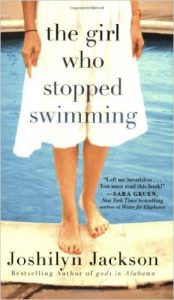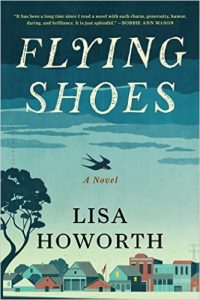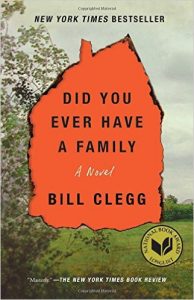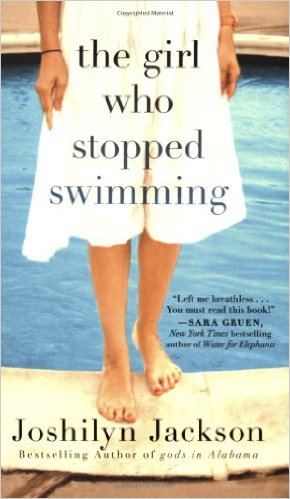ALL IN THE FAMILY—THE PERFECT CAULDRON FOR CONFLICT
According to the 2011 FBI Uniform Crime Report, 24.8 percent of  U.S. murder victims were killed by family members. That’s a nearly a quarter of all murders. The U.S. Bureau of Justice Statistics reports that family violence (including assault, murder, robbery, and sex offenses) accounted for 11 percent of all reported and unreported violence between 1998 and 2002. Although we don’t have statistics for the flip side of family passions, anyone who has experienced a tragedy knows the profound role family love and support can play during those times. And also how deep an emotional wound inflicted by a family member can go. Because family relationships are among the most highly charged of any relationships in human experience, families offer the ideal set of characters for a novel’s essential conflict.
U.S. murder victims were killed by family members. That’s a nearly a quarter of all murders. The U.S. Bureau of Justice Statistics reports that family violence (including assault, murder, robbery, and sex offenses) accounted for 11 percent of all reported and unreported violence between 1998 and 2002. Although we don’t have statistics for the flip side of family passions, anyone who has experienced a tragedy knows the profound role family love and support can play during those times. And also how deep an emotional wound inflicted by a family member can go. Because family relationships are among the most highly charged of any relationships in human experience, families offer the ideal set of characters for a novel’s essential conflict.
In the past few months, I’ve read three good novels about different kinds of families and the ways they deal with tragedies, including murder. I recommend them all.
The Girl Who Stopped Swimming by one of my favorite southern authors, Joshilyn Jackson, opens with the appearance of a drowned girl’s ghost. Laurel Hawthorne is sleeping soundly in her bedroom in a Florida gated community when the ghost of her 13-year-old daughter’s best friend wakes her and leads her to the girl’s body floating in the backyard swimming pool. Members of Laurel’s family, both immediate and extended, gather at her house on the night of the death and in the days that follow.
Laurel’s very proper mother and her anything-but-proper sister are both summoned by different people for different reasons. Already staying at her house is the daughter of a distant cousin, invited days before to introduce Laurel’s daughter to someone from her maternal grandmother’s hometown because Laurel is too ashamed and frightened by the uneducated, poverty-stricken relatives and townspeople who live there to ever let her daughter visit. Soon questions arise about who knows what and who may have been involved in the girl’s death. Family alliances and resentments are heightened, shattered, and reshaped as bits of information about the death are revealed. While not as shocking as the resolutions in some of Jackson’s other novels, the truth about the death is surprising and, as in the other novels, makes perfect sense.
 Flying Shoes by Lisa Howorth is based on a true-life murder. In 1966 Howorth’s younger stepbrother was molested and stabbed to death near her family home in Bethesda, Maryland. The case has never been solved. Howorth said that for years she thought about writing a nonfiction account of the murder, but decided that fiction was a better way to tell the story. I agree. A nonfiction version might have been a simple police procedural, but Flying Shoes is a rich tapestry with not so much a narrative arc as carefully woven character and plot threads binding each other together.
Flying Shoes by Lisa Howorth is based on a true-life murder. In 1966 Howorth’s younger stepbrother was molested and stabbed to death near her family home in Bethesda, Maryland. The case has never been solved. Howorth said that for years she thought about writing a nonfiction account of the murder, but decided that fiction was a better way to tell the story. I agree. A nonfiction version might have been a simple police procedural, but Flying Shoes is a rich tapestry with not so much a narrative arc as carefully woven character and plot threads binding each other together.
The impetus for the story is a phone call the protagonist, Mary Byrd Thornton, receives telling her that her stepbrother’s case is being re-opened and she needs to come from her home in Mississippi to Richmond to talk to the police. The linear part of the story follows her efforts to get to Richmond (she doesn’t like to fly) and what happens there, but the real story is the effect on Mary Byrd of the people around her, including her brothers, her mother, her stepfather, her husband, her drug dealer, her yard man, her husband’s quirky old prep school friend, and the tractor-trailer driver who gives her a ride to Richmond. The relationship between Mary Byrd and her mother, for example, shifts when her mother admits she was relieved when her stepson was gone because her husband favored him over her and her two children, including Mary Byrd.
 Did You Ever Have a Family by Bill Clegg also involves a related family and a group of non-related people who in many ways function like a family. But if Flying Shoes is a tapestry, woven together long before Mary Byrd is called to Richmond, Did You Ever Have a Family resembles ripples in a pond, growing wider and wider around a single sinking stone. The stone in this case is the explosion of a gas kitchen stove that kills four people sleeping in the house—a young woman and her fiancé, who are to be married the next day; the woman’s father, who is divorced from her mother; and the mother’s boyfriend. The mother is standing in the yard when the explosion happens.
Did You Ever Have a Family by Bill Clegg also involves a related family and a group of non-related people who in many ways function like a family. But if Flying Shoes is a tapestry, woven together long before Mary Byrd is called to Richmond, Did You Ever Have a Family resembles ripples in a pond, growing wider and wider around a single sinking stone. The stone in this case is the explosion of a gas kitchen stove that kills four people sleeping in the house—a young woman and her fiancé, who are to be married the next day; the woman’s father, who is divorced from her mother; and the mother’s boyfriend. The mother is standing in the yard when the explosion happens.
As the novel progresses, Clegg introduces numerous people who either know the family in the explosion, are involved with the wedding, or meet the surviving mother as she flees the town in an attempt to cope with her grief. In telling their stories—sometimes in first person, sometimes in third—each reveals something about the family or about his or her own life and experience with tragedy. By letting them share their perspectives and in some cases, knowledge about the explosion, Clegg creates a feeling of the intensity of family ties and the commonality of human experience, the human family, if you will.
As I said in the beginning, I liked all three of these novels, and I must admit my favorite novels are all focused on family. From Marilynne Robinson’s Gilead to Richard Russo’s Empire Falls, my tastes run to stories of brothers and sisters, fathers and daughters, husbands and wives, mothers and sons. What’s your favorite novel about a family?
Sally Whitney
Sally Whitney is the author of When Enemies Offend Thee and Surface and Shadow, available now from Pen-L Publishing, Amazon.com, and Barnesandnoble.com. When Enemies Offend Thee follows a sexual-assault victim who vows to get even on her own when her lack of evidence prevents police from charging the man who attacked her. Surface and Shadow is the story of a woman who risks her marriage and her husband’s career to find out what really happened in a wealthy man’s suspicious death.
Sally’s short stories have appeared in magazines and anthologies, including Best Short Stories from The Saturday Evening Post Great American Fiction Contest 2017, Main Street Rag, Kansas City Voices, Uncertain Promise, Voices from the Porch, New Lines from the Old Line State: An Anthology of Maryland Writers and Grow Old Along With Me—The Best Is Yet to Be, among others. The audio version of Grow Old Along With Me was a Grammy Award finalist in the Spoken Word or Nonmusical Album category. Sally’s stories have also been recognized as a finalist in The Ledge Fiction Competition and semi-finalists in the Syndicated Fiction Project and the Salem College National Literary Awards competition.
- Web |
- More Posts(67)
